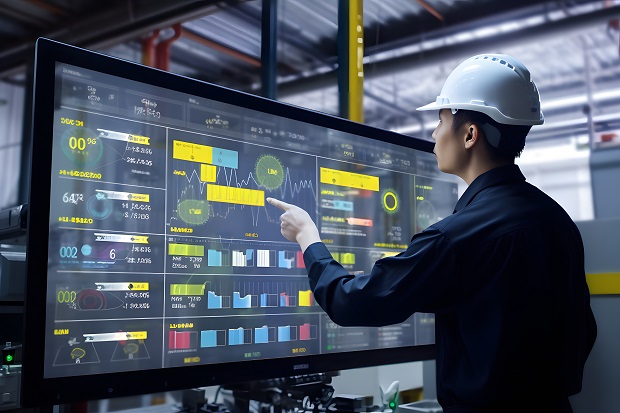Innovation is the driving force that propels industries forward. Manufacturers and business owners must realise the need to change their way of doing things and receive new business ideas to remain relevant and effective in the face of advancing technology and development in consumer preferences. Are you up for the next big thing in manufacturing?
 Additive Manufacturing: The Future of Production
Additive Manufacturing: The Future of Production
The emergence of 3D printing, or additive manufacturing, opened new business ideas for manufacturers. Its uniqueness lies in its use of digital models in creating an object physically layer after layer. 3D printing provide unheard-of possibilities of design and customization. Innovative latch designs for efficiency can be seamlessly integrated into products, leading to enhanced functionality and reduced assembly time.
Collaborative Robotics: Fostering Human-Machine Synergy
Traditional industrial robots were designed to operate autonomously, with strict safety barriers separating them from human workers. However, collaborative robotics, or cobots, are revolutionizing the manufacturing floor by enabling safe and seamless human-robot interaction. These advanced robots can work alongside humans, enhancing productivity and efficiency while reducing physical strain on workers.
Smart Factories: Harnessing the Power of IoT
The Internet of Things (IoT) has made its way into the manufacturing process, giving rise to the concept of smart factories. Collecting real-time data through connecting machines, sensors, and installations helps manufacturers carry out predictive maintenance, allocate resources efficiently, and make better decisions.
Sustainable Manufacturing Practices
As environmental concerns become increasingly prominent, sustainable manufacturing practices are gaining traction in small businesses as well as large scale manufacturing. These initiatives are a good idea as they aim to reduce the industry’s carbon footprint, minimize waste, and promote the responsible use of resources. From implementing renewable energy sources to adopting closed-loop production cycles, manufacturers are actively seeking ways to balance economic growth with environmental stewardship.
AI and Machine Learning in Manufacturing
Artificial intelligence (AI) and machine learning (ML) are no longer confined to theoretical realms; they are making their way into manufacturing businesses. By leveraging these technologies, manufacturers can optimize production lines, predict equipment failures, and uncover valuable insights from vast amounts of data. AI-powered quality control systems can significantly reduce defects and improve product consistency.
Blockchain for Supply Chain Transparency
Originally linked with cryptocurrencies, blockchain technology is under scrutiny in the manufacturing industry because it can enhance transparency and traceability in the supply chain. Through making immutable digital ledgers, blockchain gives a secure and decentralized history of transactions, helping manufacturers know where raw materials, components, and finished goods come from and go to.
Advanced Materials and Composites
The manufacturing industry is being reshaped by the development of sophisticated materials and composites. Lightweight but strong materials such as carbon fiber reinforced polymers (CFRP) and nanomaterials are leading product design changes, making possible the development of more durable more efficient components.
Advanced materials and composites offer superior strength-to-weight ratios, improved thermal and electrical properties, and enhanced durability, making them ideal for applications in aerospace, automotive, and construction industries.
Virtual and Augmented Reality in Manufacturing
Virtual reality (VR) and augmented reality (AR) technologies are transforming the way manufacturers design, prototype, and assemble products. VR allows for realistic simulations and virtual testing, reducing the need for physical prototypes and minimizing costs. AR, on the other hand, overlays digital information onto the real-world environment, enabling technicians and operators to access real-time data, visualize complex assemblies, and receive step-by-step guidance during maintenance or repair procedures.
These immersive technologies offer significant benefits, including improved product design, enhanced training and knowledge transfer, and increased operational efficiency, ultimately leading to cost savings and improved quality control.
Cybersecurity in Manufacturing
As manufacturing processes become increasingly digitised and interconnected, the need for robust cybersecurity measures becomes paramount. Manufacturers must prioritise the protection of their systems, data, and intellectual property from cyber threats such as malware, hacking attempts, and data breaches. Successful cybersecurity endeavors are imperative for upholding brand integrity and trust, averting production outages while protecting sensitive information.
It’s through implementation of high-end security strategies, coding techniques and regular updates of software that manufacturers protect their activities, ensuring that business does not stop even for a while.
Cloud Computing and Data Analytics
Cloud computing has revolutionised the way manufacturers store, access, and analyse data. By leveraging cloud-based platforms, manufacturers can streamline their operations, enabling real-time data sharing, remote access, and scalability. Moreover, advanced data analytics tools can uncover valuable insights from vast amounts of manufacturing data, facilitating informed decision-making and process optimization.
Cloud computing and data analytics offer manufacturers a scalable and cost-effective solution for data storage, processing, and analysis, enabling them to gain a competitive edge through data-driven insights and informed decision-making.
Conclusion
The manufacturing industry is undergoing unprecedented times. There are many things in the field right now being discovered and developed such as food production, beauty products, personal care, and others. This transformative period is fuelled by a myriad of innovative ideas and technologies.





Comments are closed.